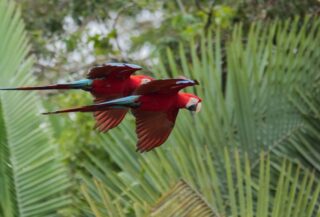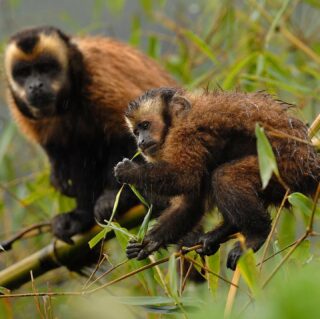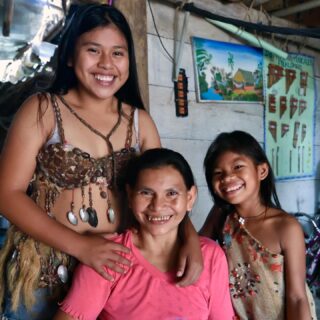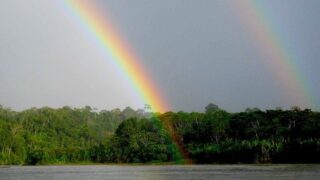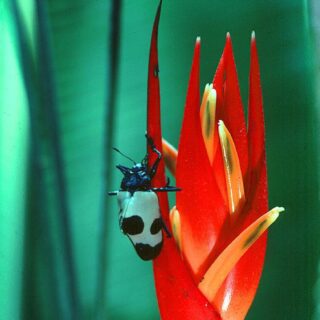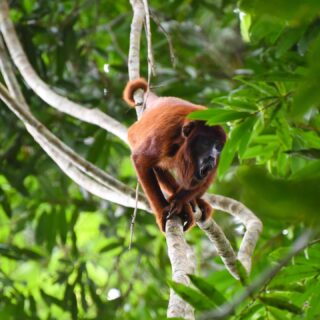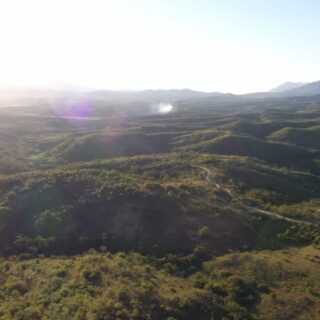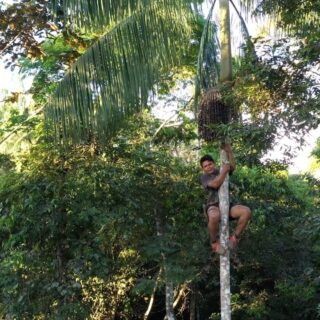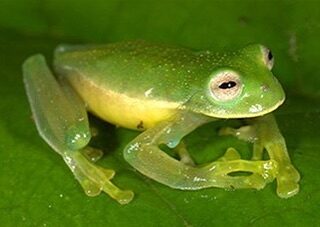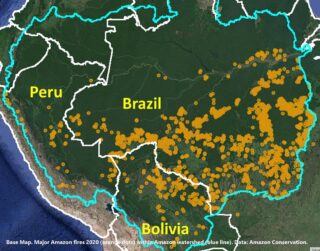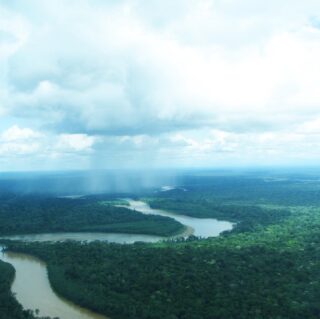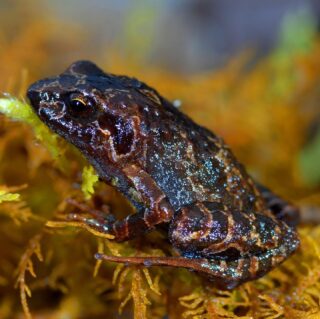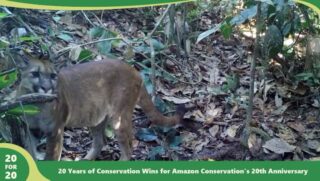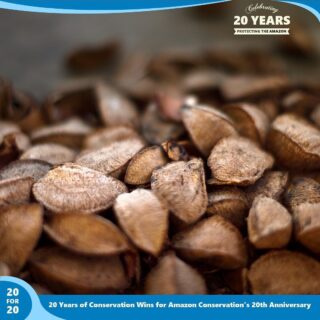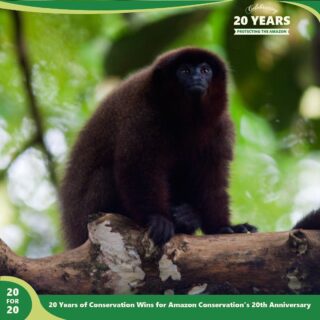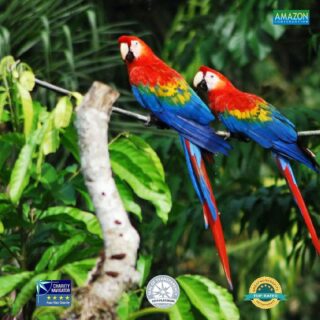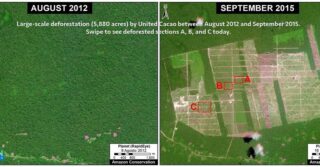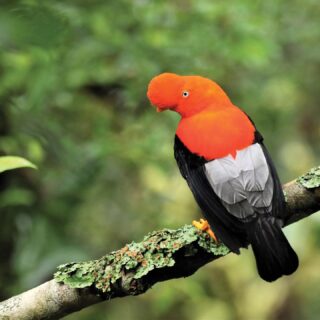 As ACA’s premier Amazonian biodiversity research station, CICRA, continues to grow, ACA’s new Wayqechas (why-key-chas) Cloud Forest Research Station is under construction at full speed. Jorge Herrera, who successfully administered CICRA in previous years, is now taking the reins as the new administrator at Wayqechas. He plans to have the first three cabins available this April 2006. Three teams are working busily on the cabins, competing among themselves to deliver the best product. The station will receive its first visitors in April.
As ACA’s premier Amazonian biodiversity research station, CICRA, continues to grow, ACA’s new Wayqechas (why-key-chas) Cloud Forest Research Station is under construction at full speed. Jorge Herrera, who successfully administered CICRA in previous years, is now taking the reins as the new administrator at Wayqechas. He plans to have the first three cabins available this April 2006. Three teams are working busily on the cabins, competing among themselves to deliver the best product. The station will receive its first visitors in April.
Month: March 2006
New partnership with the ACEER Foundation for Amazon Science Training
 ACA recently partnered with ACEER, the Amazon Center for Environmental Education and Research, to enhance education and research training activities at CICRA– ACA’s Research Station adjacent to the Los Amigos Conservation Concession.
ACA recently partnered with ACEER, the Amazon Center for Environmental Education and Research, to enhance education and research training activities at CICRA– ACA’s Research Station adjacent to the Los Amigos Conservation Concession.
With support from the National Geographic Society, ACEER will expand current facilities at CICRA to accommodate groups of up to 20 course participants in comfortable dormitories. Course participants will have access to laboratories, ACA’s library, internet, and other facilities. Most importantly, they will have access to the Los Amigos Conservation Concession, a pristine Amazon setting.
ACEER plans to sponsor several courses at CICRA during the year, and expand in the years to come.
Trans-oceanic Highway Project Presents Key Challenges for Conservation and Sustainable Development
 A project that is already underway to upgrade existing roads linking Brazil to the Pacific Ocean will bring significant challenges for conservation and land use planners in southeastern Peru. In March, ACA joined more than 200 participants including Peruvian government authorities, regional environmental commissions, indigenous and native communities, representatives from academia and civil society in a workshop to facilitate discussion among the regions of Cusco, Puno and Madre de Dios on local opportunities and sustainable development and conservation issues around the construction of the highway.
A project that is already underway to upgrade existing roads linking Brazil to the Pacific Ocean will bring significant challenges for conservation and land use planners in southeastern Peru. In March, ACA joined more than 200 participants including Peruvian government authorities, regional environmental commissions, indigenous and native communities, representatives from academia and civil society in a workshop to facilitate discussion among the regions of Cusco, Puno and Madre de Dios on local opportunities and sustainable development and conservation issues around the construction of the highway.
One of the results achieved during this first workshop was a general consensus regarding the need to work together to ensure sustainable development, particularly in the biologically fragile Madre de Dios–Cusco region. Many discussions focused on the need to generate employment and improve the quality of life and social conditions in the region, while conserving biodiversity and maintaining the connectivity between the three regions’ unique ecosystems.
A strategy has been proposed, based on planned development and sustainable management of natural resources, to promote:
- Local capacity building
- Information access and exchange
- Independent monitoring and evaluation of social and environmental impacts related to the project
- Close collaboration among existing protected areas, and establishment of ecological and productive corridors with non-timber forest concessions, conservation concessions, ecotourism and reforestation, and community and indigenous reserves
- Incentives for forest protection.
ACA will continue to work closely with all the parties engaged in these discussions, to propose and implement viable solutions to these critical challenges.
Madre de Dios Red List Project Underway
We know that an extensive area of the Madre de Dios basin has been set aside for protection in parks and reserves. However, it is not known exactly which species are protected in these areas, and which species have been recorded in the Madre de Dios basin but whose habitat is not protected. The answers to these questions will change in the coming decades, due to increasing pressures from economic development and climate change.
ACA is thus developing new plans and tools to help INRENA (the Peruvian National Institute of Natural Resources), researchers and conservationists to avoid species extinctions in the region. The first phase of the “Parks and Species of Madre de Dios” program consists of a preliminary compilation of species lists and publications for select groups of animals (birds, terrestrial mammals, bats, fishes, invertebrates, amphibians and reptiles). We expect the first products to be ready two months from now:
- Lists of the species present and expected within each protected area in the Madre de Dios basin
- Lists of the species known to occur in the Madre de Dios basin but not yet recorded in a protected area
- A list of high-priority research projects to fill gaps in the previous lists; 4) A plan to monitor and protect species not yet covered by the region’s parks.
ACA Appoints New Executive Director
 Since its establishment in 1999, Amazon Conservation Association has grown significantly and made great progress in Peru and Bolivia. During these first years, Cristian Vallejos successfully led the organization to greater horizons, consolidating a foundation for solid, effective programs have that surpassed even the highest initial expectations of colleagues, friends, and staff of the Organization.
Since its establishment in 1999, Amazon Conservation Association has grown significantly and made great progress in Peru and Bolivia. During these first years, Cristian Vallejos successfully led the organization to greater horizons, consolidating a foundation for solid, effective programs have that surpassed even the highest initial expectations of colleagues, friends, and staff of the Organization.
As part of ACA’s adaptive strategy for meeting the coming challenges in conservation, we have appointed Steven Panfil as ACA’s new Executive Director, starting January 2006. Steve has a doctorate in botany from the University of Georgia and a bachelor’s degree in ecology from Princeton University
Based in Cusco, Peru, Steve has served as ACA’s Conservation Director for the past 3 years. With greater presence in the field, we expect to strengthen our relations with governmental organizations, local communities and other key partners in conservation. I would like to personally thank Cristian Vallejos for his excellent commitment and leadership during this important initial phase.
New Agreement Signed with the Peruvian Government for Amazon Weather Stations
The Asociación para la Conservación de la Cuenca Amazónica (ACCA) and the Peruvian National Meteorological and Hydrological Service (SENAMHI) have signed a cooperative agreement that will enhance the network of weather stations throughout the Madre de Dios basin.
This two-year renewable agreement will upgrade SENAMHI-operated weather stations and integrate them with two stations monitored by ACCA. The staff responsible for collecting data at the stations will be mostly selected from the communities adjacent to the Los Amigos Conservation Concession, as a means to benefit the communities while achieving sustainable conservation. As part of this agreement
ACCA will also have access to historical data collected by SENAMHI in the Madre de Dios basin. Data obtained from these archives and from the stations will be critical in our ongoing efforts to monitor the impacts of climate change in the Andes-Amazon region.

